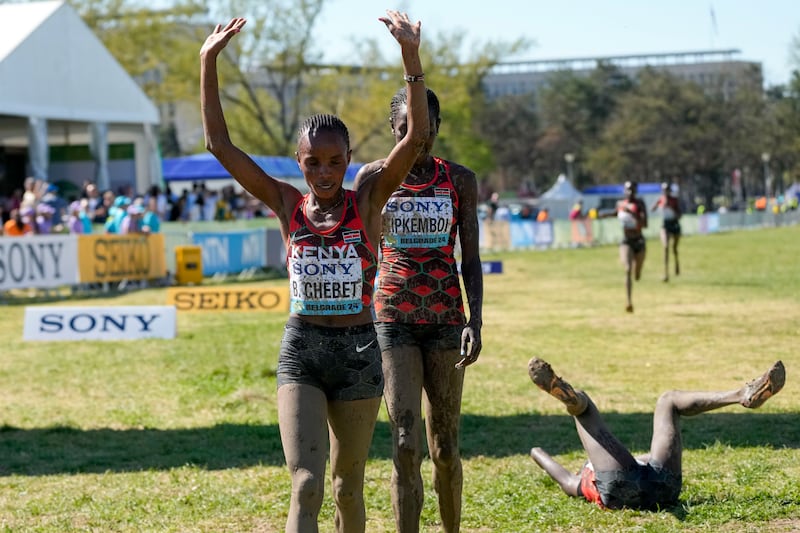Cross-country races haven’t been part of the Olympics for more than a century, but the head of the international track and field federation is determined to bring the event back — but this time, for a Winter Games.
And while World Athletics President Sebastian Coe has previously confirmed there are discussions underway to add the race to the 2030 Winter Games in the French Alps, he’s now also talking about Utah’s next Olympics.
For the first time publicly, Coe has said that bringing the event to the 2034 Winter Games in Utah is a possibility. His comments came during a weekend interview with The Associated Press while in New York City for Sunday’s marathon.
Last week, U.S. Olympic and Paralympic Committee leaders not only endorsed adding cross-country and cyclocross, a mix of road cycling, mountain biking and steeplechase, to France’s 2030 Games but also expressed excitement about “pushing boundaries” at Utah’s 2034 Games.
Coe, the leader of the 2012 Summer Games in London and a member of the International Olympic Committee, credited new IOC President Kirsty Coventry of Zimbabwe for her willingness to look at making changes.
Coventry has set up multiple working groups to conduct sweeping reviews of IOC policies to ensure the Switzerland-based organization is “fit for the future.” Coe serves on the working group dealing with the Olympic program.
“The new president is clear they want to put everything on the table at the moment,” Coe told the AP. “It’s a very different atmosphere. It’s very much how can we improve together rather than we’ll tell you how to do it. She’s blown some oxygen into the organization.”
Whether that means some Summer Games sports could be moved to the Winter Games remains to be seen. Coventry has not given the working groups a deadline but has said she doesn’t want to see them “going on for months and months.”
Cross-country running hasn’t been in the Olympics since Paris hosted the Games in 1924, where what the AP described as “extreme exhaustion from the heat and the course” that summer led to the event being removed from the Olympic program.
High temperatures wouldn’t be an issue in the Winter Games, of course, and there’s already been the suggestion that cross-country could be held someplace more temperate in 2034, such as St. George. The 2030 Winter Games already include some indoor venues along the French Riviera.
Adding the event is also seen as a way to expand the number of countries participating in the Winter Games, attracting athletes from parts of the world that traditionally aren’t competitive on snow and ice, such as Africa.
“Winter Games aren’t African. It doesn’t scream African,” Coe told the AP. “So I think it was a good opportunity.”
During last week’s Team USA Media Summit in New York City, the CEO of the USOPC, Sarah Hirshland, said “it makes great sense” to put cross-country and cyclocross on the program for the 2030 Winter Games.
“It’s logical and it’s the right thing to do,” Hirshland said, praising the international track and field federation “for pushing the envelope and trying to stay at the forefront and innovating, and thinking differently about how to present their sport.”
While she did not specifically address what that would mean for 2034, Hirshland made a point of saying both Utah’s Olympic organizers and the USOPC were looking forward to “doing things that have never been done before around the Winter Games.”
Fraser Bullock, president and executive chair of the Organizing Committee for the 2034 Olympic and Paralympic Winter Games, has told the Deseret News they’ll follow the IOC’s lead on the issue.
He acknowledged last week that adding events would increase costs, including by potentially expanding the now compact scope of the 2034 Games beyond an hour’s drive from athlete housing at the University of Utah, but could also open the door to additional revenues.
“There are many questions that arise related to this topic. We have to wait and see what comes out of the IOC working group, and then what the IOC recommends,” Bullock said. “Fortunately, we know the operations of the Games well and can thoughtfully react to potential changes.”


